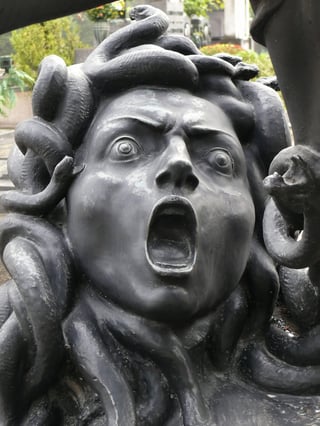
In a controversial case of cultural adaptation, Italian government officials made a decision to cover ancient, nude statues at Rome’s Capitoline Museums earlier this week in preparation for a news conference with visiting Iranian President, Hassan Rouhani. Click here for New York Times coverage on the matter.
While we can easily understand why there would be concern that nude images or statuary could embarrass or offend an Iranian religious leader, we should ask those Italian officials to consider the consequences of suppressing a core Italian cultural value for art and freedom of expression. While it is true that within an Iranian context public displays of nudity are certainly taboo, in the conspicuously Italian setting for this meeting, these displays are more than appropriate. The statues are, in fact, celebrated as important foundations of Italian culture. Arguably, Roman antiquities and huge swaths of Italian art are considered prized objects by diverse cultures throughout the Mediterranean and worldwide.
It is still unclear as to who exactly made the decision to cover these statues, and the Associated Press reported that Rouhani didn't contact Italian officials to make such a request, “but that he appreciated the welcome he had received.”
This failure to uphold a central tenet of Italian culture certainly detracted from the meeting’s objective of integrating Iranian and Italian commercial and industrial interests. It would be fair to say that in an act of cultural sensitivity, Italian government officials were too sensitive for their own good, and that this foible cost them public disapproval, a media frenzy and a variety of other distractions. I would be curious to learn how the Iranian media has reacted to this.
Cultural adaptation is pivotal to success in many cross-cultural situations, e.g. when visiting another country to do business or even when receiving visitors from abroad (offering Rouhani wine at a formal dinner would be viewed as a major faux pas). It goes without saying that contemporary global leadership is a balancing act that is not easy. If the statues were not covered, what could have happened? Did the Iranian delegation or Rouhani himself balk at the lack of cover-up of the dozens of other nude statues and overtly Western depictions of human life in the museum of which they invariably caught glimpses?
Put yourself into their shoes: What would you do if you were to invite an important guest from another culture for a meeting at one of your most important cultural institutions that contained a prized artistic object representative of your culture? Would it be valuable to also ask what that guest would do to prepare for your visit?
Learn more about developing the global mindset by listening to our webinar Mastering The Global Mindset. Click the link below to download.


